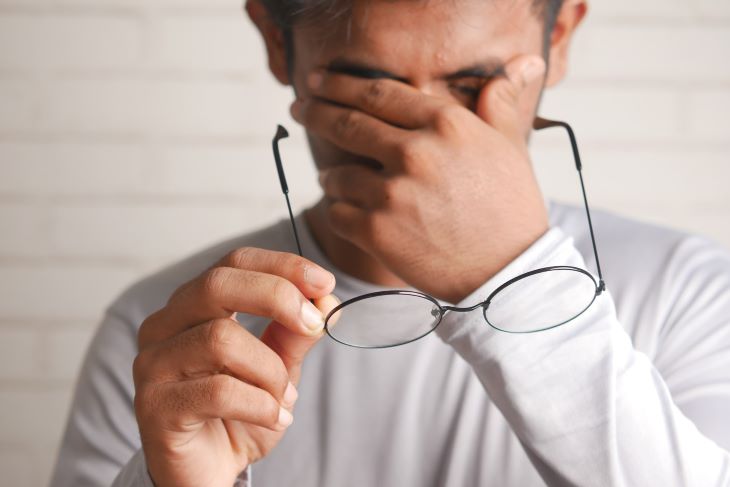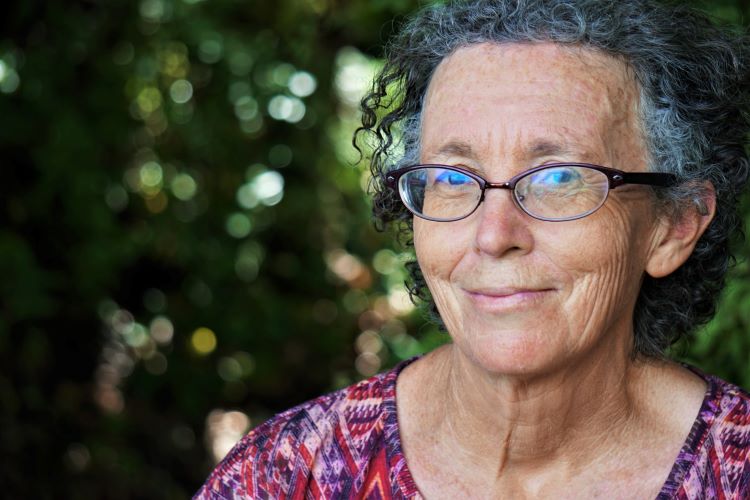Oxycodone is a drug that is essentially a painkiller, it is medically prescribed for people who are experiencing moderate to severe pain, whether it is after an operation or because of a long term medical condition.
Oxycodone may also be referred to as OxyContin or Oxynorm which are the brand names it is known by.
It is normally prescribed to manage pain when over the counter medicine has been proven to be ineffective.
Oxycodone belongs to the Opioid category of drug, the term opioid refers to any drug that is derived from the poppy plant, such as opium, morphine and codeine. (7,13)
Around 20 years ago in the USA, Oxycodone started to become a popular drug of abuse where it was taken orally, chewed or crushed and inhaled as a powder. (12)
Oxycodone is available in capsule and liquid form that tends to be fast acting and starts relieving pain within half an hour to an hour of ingestion.
However, despite being fast acting, its effects only tend to last for up to around 5 hours. (8)
It can also be administered by injection and although it is advised to have this in a medical setting.
It can also be prescribed as a slow release tablet which takes longer to take effect but the effects tend not to wear off so quickly.
There is a risk of developing an Oxycodone addiction, and therefore doctors who may find themselves prescribing it to patients for longer than one month will be required to carefully plan how and when the patient will stop taking the drug. (2,4,13)
Oxycodone Addiction – Sought After Effects

Oxycodone works by changing your perception of pain and relieves pain and distress by producing an effect which allows the user to feel detached from the pain.
As well as providing relief from pain, Oxycodone can generate a feeling of euphoria and pleasure within a person who has been taking it as its chemicals easily attach to opioid receptors in the brain which initiate this feeling.
Several other positive feelings have been associated with taking the drug including warmth, relaxation and happiness as well as detachment from pain and anxiety. (1,13)
At OK Rehab, we offer free advice from a team of non-judgemental professionals, many of whom are in recovery and understand how hard it can be to change your relationship with addiction.
To find out more about Oxycodone addiction, simply reach out to our 24/7, confidential hotline on 0800 326 5559.
Oxycodone Addiction – How Opioids Work

There are receptors in cells in the brain and throughout the human body that are compatible with the chemical characteristics of Oxycodone so its opioid properties are able to attach easy enough to these receptors and generate a physical effect on someone who consumes it.
It is able to block any feeling of pain that we have and also to make us feel euphoric accompanied by a sense of pleasure, (1) which is a result of the dopamine release that also occurs when the drug takes effect.
This feeling of euphoria is so strong and powerful that people will seek to experience it again, as their body starts to learn to associate these pleasurable feelings with consumption of the drug.
This explains why it became a popular drug that was consumed recreationally by a large number of people.
There is a high risk that people with untreated mental health conditions such as depression and anxiety are susceptible to becoming addicted to Oxycodone.
As are those who have been addicted to another substance and are experimenting with other drugs and seeking to gain a heightened experience of euphoria which is obtained by taking this this drug.
Characteristics of Oxycodone Addiction

Oxycodone addiction is characterised by compulsive use and a preoccupation with the drug, people who become addicted to Oxycodone continue to use the drug despite the drastic deterioration in their own personal circumstances and the negative health consequences the drug is having for them.
People who become addicted to Oxycodone will tend to lose of control over their use and not be able to stop even though they may want to.
This is because cravings that are generated by withdrawal symptoms are very difficult to resist satisfying.
At OK Rehab, we offer free advice from a team of non-judgemental professionals, many of whom are in recovery and understand how hard it can be to change your relationship with addiction.
To find out more about Oxycodone addiction, simply reach out to our 24/7, confidential hotline on 0800 326 5559.
Oxycodone – Tolerance and Withdrawal

Physical dependency to Oxycodone like other opioid drugs can occur very quickly, within a matter of weeks.
A person taking Oxycodone for longer than 30 days is likely to start building up a tolerance to the drug and will start to feel withdrawal symptoms if they stop suddenly.
Tolerance means that more of the drug needs to be consumed in order to keep experiencing the initial effects a person had when they first consumed the drug.
The body and brain adapt to Oxycodone like any other drug and so over time the original effect that people had when taking the drug is greatly reduced, so they will need to take more Oxycodone to gain a similar effect.
But the feeling that someone experienced when taking Oxycodone is still present in the person’s brain so they will be highly motivated to seek opportunities to recreate that experience.
The more frequently they take a fast acting version of the drug the quicker they will start to experience withdrawal symptoms when they cease taking Oxycodone.
Its important to stress that taking drugs like Oxycodone means that you are changing the way your brain chemistry operates and this can become a huge influence on driving your behaviour.
Humans by their very nature (biology) are motivated to eradicate negative experiences (such as pain) and to seek pleasurable experiences. (7)
Oxycodone has very powerful effects

It has been known that addictive opioid drugs like Oxycodone can increase dopamine levels 100 times more than any natural substance.
So Oxycodone is a drug that can have a very powerful effect on the human body so its easy to see why it provides a very powerful motivation for people to use it regularly. (7,11)
It has also been noted that once the effects of drugs become widely known then people will experiment with drugs to see if it has the same effect on them. (12)
At OK Rehab, we offer free advice from a team of non-judgemental professionals, many of whom are in recovery and understand how hard it can be to change your relationship with addiction.
To find out more about Oxycodone addiction, simply reach out to our 24/7, confidential hotline on 0800 326 5559.
Oxycodone triggers reward pathways in the brain

A more complete understanding of how the reward pathway operates and the affect that certain types of drugs has on that pathway has been identified over the years. (3a)
The release of dopamine has a powerful affect on our minds at a physical and a psychological level which is why it is hard to stop this behaviour as the euphoric feeling is something people are keen to re-experience.
There are several dopamine pathways but the one that tends to be associated with the development and maintenance of Oxycodone addiction is the mesolimbic system as it affects the conscious experience of the user and activates the cravings, and the sense of detachment from pain that it brings along with the heightened sense of pleasure. (7, 13)
At OK Rehab, we offer free advice from a team of non-judgemental professionals, many of whom are in recovery and understand how hard it can be to change your relationship with addiction.
To find out more about Oxycodone addiction, simply reach out to our 24/7, confidential hotline on 0800 326 5559.
Oxycodone and mental health

People addicted to opioids are more likely to have depression and anxiety running alongside the substance misuse problem as well,
This is probably because of the high levels of dopamine release that occurs as a result of taking the drug which will significantly elevate the mood of a person diagnosed with depression or anxiety.
There is a higher chance of this happening if they learn that taking the drug will give them a pleasurable experience. (3,7,13)
Behavioural Signs of Oxycodone Misuse
Several behavioural signs are apparent in someone who maybe misusing Oxycodone. These include:
- Lack of self care, and a decrease in ability to function day to day
- Running out of prescriptions early
- Using multiple sources to obtain drugs, for example asking friends or work colleagues
- Altering method of delivery – for example injecting the substance will enable someone to feel the effects much quicker (7, 13)
Key Signs and Symptoms of Oxycodone Overdose

There are several signs that a person may have overdosed on an opioid drug, these include:
- The person may experience hallucinations
- They may appear as if they are heavily sedated
- The pupils in their eyes appear to shrink
- There will be drop in their body temperature (Hypothermia)
- They will have respiratory depression
- They may have excess fluid in the lungs, a condition known as a pulmonary oedema
- Their blood pressure will be dangerously low and they are vulnerable to having a cardiac arrest
At OK Rehab, we offer free advice from a team of non-judgemental professionals, many of whom are in recovery and understand how hard it can be to change your relationship with addiction.
To find out more about Oxycodone addiction, simply reach out to our 24/7, confidential hotline on 0800 326 5559.
Symptoms of Acute Oxycodone Withdrawal

Withdrawal from Oxycodone is known to begin 6-8 hours after last taken for heavy users, and peaks between 48-72 hours, and overall it can takes 7-10 days for symptoms to disappear.
Depending on how long they have been taking the drug for people will tend to experience different withdrawal symptoms, with symptoms becoming more severe and problematic as time progresses, and long term users will experience potentially very serious symptoms.
Early Stages
Early on in the process of developing a dependence a person will initially experience the following withdrawal symptoms when they go a period of time without taking the Oxycodone , these tend to be the reverse of the normal effect of the drug;
Anxiety, restlessness, insomnia, coughing and sneezing, mild tachypnoea (rapid breathing)
craving for the drug, increased pulse, diarrhoea, nausea, aches, sweating and rhinorrhoea (runny nose) (1,12)
Medium Term Users

Later on, after a period of a couple of months, they will experience:
- Tremors
- Muscle aches and pains
- Arthralgia (joint stiffness)
- Muscle twitching
- Chills
- Gooseflesh appearance
- Hot flushes
- Abdominal pain
- Aydriasis (dilation of pupils) (1,12)
At OK Rehab, we offer free advice from a team of non-judgemental professionals, many of whom are in recovery and understand how hard it can be to change your relationship with addiction.
To find out more about Oxycodone addiction, simply reach out to our 24/7, confidential hotline on 0800 326 5559.
Long Term Users

Long terms users of Oxycodone addiction will have more severe cases of withdrawal symptoms which include:
- Tachycardia, (fast heart rate)
- Hypertension (high blood pressure)
- Feeling nauseous, vomiting, diarrhoea, fever
- Dehydration and agitation
- Persistent Tachypnoea (abnormally rapid breathing) (1,12)
At OK Rehab, we offer free advice from a team of non-judgemental professionals, many of whom are in recovery and understand how hard it can be to change your relationship with addiction.
To find out more about Oxycodone addiction, simply reach out to our 24/7, confidential hotline on 0800 326 5559.

References
(1) DrugAbuse.gov (2021) Prescription Opioids Drug Facts (online) @Prescription Opioids DrugFacts | National Institute on Drug Abuse (NIDA)
(2)Harvard Health Publishing (2013) Caution: These are the Most Addictive Pain Meds
addictive pain meds – Harvard Health
(3) Harvard Health Publishing (2019) Treating Opiate Addiction
Treating opiate addiction, Part I: Detoxification and maintenance – Harvard Health
(3a) Mack, A.H., Harrington, A.L. & Frances, R.J. (2010) Clinical Manual for Treatment of Alcoholism and Addictions. APP. London
(4) McBride, A. (2003) Some Drugs of Misuse in Peterson, T. & McBride, A. (ed) Working with Substance Misusers: A Guide to Theory and Practice London. Routledge.
(5) Merrill, J. (2003) Medical Approaches and Prescribing: Drugs in Peterson, T. & McBride, A. (ed) Working with Substance Misusers: A Guide to Theory and Practice London. Routledge.
(6) Morse, G. (2007) Care of Opiate Users: Detoxification in Beaumont, B. (ed) Care of Drug Users in General Practice Radcliffe Publishing. Oxford
(7) Moss, A, Dyer, K (2010) The Psychology of Addictive Behaviour. Palgrave McMillan. New York
(8) National Health Service (2021) Oxycodone: Strong painkillers to treat severe pain (online) @Oxycodone: strong painkiller to treat severe pain – NHS (www.nhs.uk) Caution: These are the most
(9) National Institute for Health and Care Excellence (NICE) (2007) Drug Misuse in Over 16s: Opioid Detoxification
(10) Lewis, J., Williams, S. (2003) Home Detoxification in in Peterson, T. & McBride, A. (ed) Working with Substance Misusers: A Guide to Theory and Practice London. Routledge
(11) Rassool, G.H. (2011) Understanding Addictive Behaviours. Palgrave MacMillan
(12) Wills, S. (2005) Drugs of Abuse. Pharmaceutical Press. London
(13) Yoon, R. (2014)Opioid Addiction In Herie, M. & Skinner, W. (ed) Fundamentals of Addiction: A Practical Guide for Counsellors. CAMH. Canada






